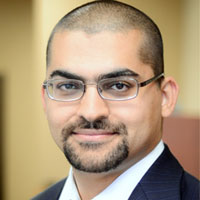The top qualities you should consider when choosing a hair transplant provider
If you are
considering some type of hair transplant it's very important that you choose
the right person to complete the procedure. Any type of surgical procedure that
you agree to a foreign country can be a bit frightening at times but choosing
the right surgeons to get the job done is important too. Here are some of top
qualities to look for when picking your surgical provider:
Find a team that has extensive experience
Look at a team and the results that they have been able to achieve. Doing some deep
digging into the clinic that you are working with and making sure that they
have all appropriate insurance, qualifications and certifications is very
important.
Meet with the surgical team
Meetingover Skype is one thing but you should never agree to a surgery where you don’t
have a chance to meet the surgeon firsthand. Try a face-to-face consultation
before you sign anything and make sure you can feel confident in the person and
their technique.
Consider the right hair transplant for your needs
Research
the type of hair transplant that you may require. The Follicular unite
extraction is one of the favored techniques in the industry because it offers a
far less invasive surgery type. FUE or follicular unit extraction often takes
longer recovery times.
Search online reviews
Check into before and after pictures and check online reviews for the area that you are
considering. Learning more about some previous patient experiences online can
really help you to gain some insight into the way that they were treated
through customer service and just how smooth the process was for them over
time. If you have the chance to speak to a previous patient over the phone with
recommendation from the clinic you can often have all of your questions
answered about the surgical team quickly.
Consider the price
You can often shop around and find an area of the world and a procedure that fits
within your price bracket. In the worst-case if you don't feel confident in
taking on a budget surgery somewhere that isn't known for medical tourism, you
could always save for a year or two and go to a more trusted clinic.
Ask about aftercare
In some cases programs can slash the price of a hair transplant because they don't
offer much in the way of after care. If you can be given a comfortable place to
rest and proper aftercare instructions this can lead to better results and
improved comfort after the procedure.
Always keep some of these factors in mind when you are picking the right surgical team to
perform your hair transplant abroad.
Hairfear
Frequently asked questions about hair transplant procedures
How much does a hair transplant cost?
Hair transplants can vary in price based off of the area in the world that you are interested in getting a hair transplant as well as the size of the area where you may need a hair transplant. Experienced doctors in the United States will often charge some of the highest prices for a hair transplant worldwide and this is why so many travelers make the move to other parts the world like Turkey, India, Thailand, Mexico...etc for their hair transplants.
Will a hair transplant hurt?
Although hair transplants may look like a particularly
unpleasant or painful experience is actually very little discomfort involved
with the surgery itself. Hair transplants are always done under an anesthetic so there's absolutely zero pain during the treatment itself. Many people actually relate the process as being very similar to going to the dentist for filling or root canal. Mild pain can persist over the course of postop treatment but he generally just resumes for a few days.
Who can deliver the best surgery?
It's usually best to consider working with surgeons who have and IAHRS certification or international alliance of hair restoration surgeons recognition. IAHRS can often deliver recommendations for the best surgeons in each particular area.
Is this scarring noticeable?
Any type of hair transplant will require the use of incisions throughout the scalp. There can also sometimes be a small scar from the donor area towards the back of the scalp. Asking to look at photos of the surgeon's previous work will help you to see roughly how bad the scarring could be. In most cases an experienced professional can limit the look of scarring and noticeable marks from the surgery.
How long does it take for the hair to grow?
In most cases hair growth will start within eight months and you can start to see a full effect from the hair transplant after a full year. The initial signs of growth can usually start between 3 to 4 months after the surgery.
Are the results permanent?
The hair follicles that are transplanted are generally the ones which are genetically resistant against the symptoms of baldness. As long as you receive hair loss treatment later in your life after the symptoms of balding have started to subside, you can have a better chance at permanent results.
While everyone know you've had surgery?
If you want to limit the chance that people may find out about your surgery it's important to give at least three weeks of healing as the surgical area will be affected and red just after surgery. After around a month of healing it can look far less noticeable. You could consider wearing a hat while time passes or opting for some extra time off if possible.
How long should I rest after surgery?
It's recommended to rest for at least a few days after surgery so that your body can recover. Trenton to over exert yourself and limit sexual activity, running in the gym for around 10 days after surgery.
Is it possible to lose more hair as a result of surgery?
There is always a chance of shock loss which happens when the hair is weak and miniaturizing after the surgery. As long as the surgeon is choosing the correct hair follicles and performing the surgery well it's possible to minimize the chance of this happening however.
Will I need another hair transplant?
The need for another transplant really depends on the individual. With a solid foundation surgery and working to potentially bolster results with drug therapy, you can improve the stability of the hair that was transplanted as well as prevent further loss. Getting a hair transplant early
on in your 20s or early on in life could lead to needing long-term transplants as hair loss can be progressive.







